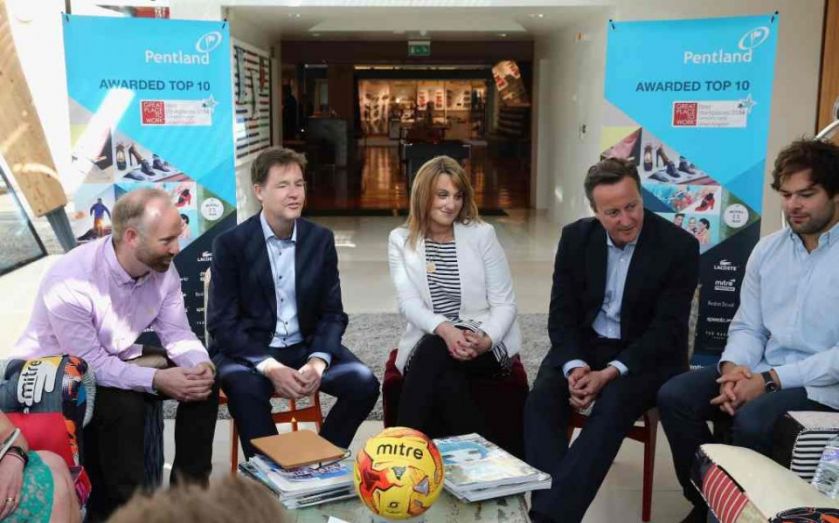Kate Robertson: Who do you think is sorting out youth unemployment anyway?

Understandably, David Cameron vaunts the 1.75 million jobs created on his watch. Though this makes those on the opposition benches squirm – I'd just like to point out who's doing the creating.
As the political back-and-forth of an election season gains momentum, it’s something we are likely to hear more and more members of government taking credit for. And while this government has been fairly pro-business, of which fact I'm glad and grateful, it's as well to point out that it isn't government that's doing the employing – it's business. It's the much-maligned private sector. So take that, Ed Miliband.
In 2014 the inhabitants of these isles registered more than one new business every minute. From those brave souls who left security behind to create something of their own, to the FTSE chief executives who found ways to weather the storm; the tale of our economy’s growth is one with far more protagonists than the sound-bites of the next few months are likely to reveal.
Thanks to the relative resilience of Britain’s labour market since 2008, the issue of joblessness among the nation’s young has received little attention in recent years. The UK’s 16.6% youth unemployment rate, after all, is mercifully far from the eye-watering 56.1% currently suffered in Spain.
However, even with such seemingly bullish figures on show, youth unemployment continues to harbour the potential to undo all the progress we have made.
The generation currently entering the workplace is unique. For the first time in human history, young people are beginning their careers with more knowledge of the world we live in than those employing them.
Thanks to the proliferation of advanced technologies into almost every sector of our economy, the potential value that this generation of ‘digital natives’ can bring is both enormous and indispensable.
Between 2010 and 2012 alone, new business formation among 16-29 year-olds leapt from 4.9% to 9.5%, a trend that shows little sign of abating.
But this youthful asset risks being squandered unless we ensure young people are receiving the training they need to make their digital literacy economically productive and capable of being harnessed by businesses.
Last year, the Institute for Public Policy Research warned economic growth alone would not mend Britain’s youth unemployment problem, highlighting the mismatch currently existing between what young people are being trained for and the realities of the current jobs market.
With almost 100,000 young people undertaking training in health and beauty in the UK (a sector estimated to offer only around 20,000 jobs), the IPPR’s warning is one Britain’s businesses can’t afford to ignore.
Lobbying government for better schooling and more favourable tax conditions are both aims worthy of pursuing. But, just as it was business that acted to return our economy to growth, it will be business that takes a leading role in overcoming this latest challenge.
Across the country, businesses are already working hard to get young people ‘job ready’. And there's much more that can be done. Some 86% of young people believe business should play a more active role in their schools, which is a far more convincing mandate than either party’s education policy is likely to receive come May.
Last month myself and other chief executives from leading companies — including Telefonica, Deloitte, Nestle, Iglo, First Group, Allied Bakeries, Westfield, HSBC, Clifford Chance, Ella's Kitchen — got together to discuss exactly how we can address youth unemployment.
Over 50 executives from the world’s most important businesses, each bringing with them one of their terrific young employees, dined at the Mansion House with the Lord Mayor of the City of London, sharing their experience and the best ways to tackle joblessness now and in the future.
Unlike the politicians, none of us will be declaring victory in a few months' time. But next year we will meet again, and this time there will be more of us. And just maybe, in a generation’s time, we will be able to look back at a world a little better than that we came into. It would be good if the politicians joined us – and helped us?